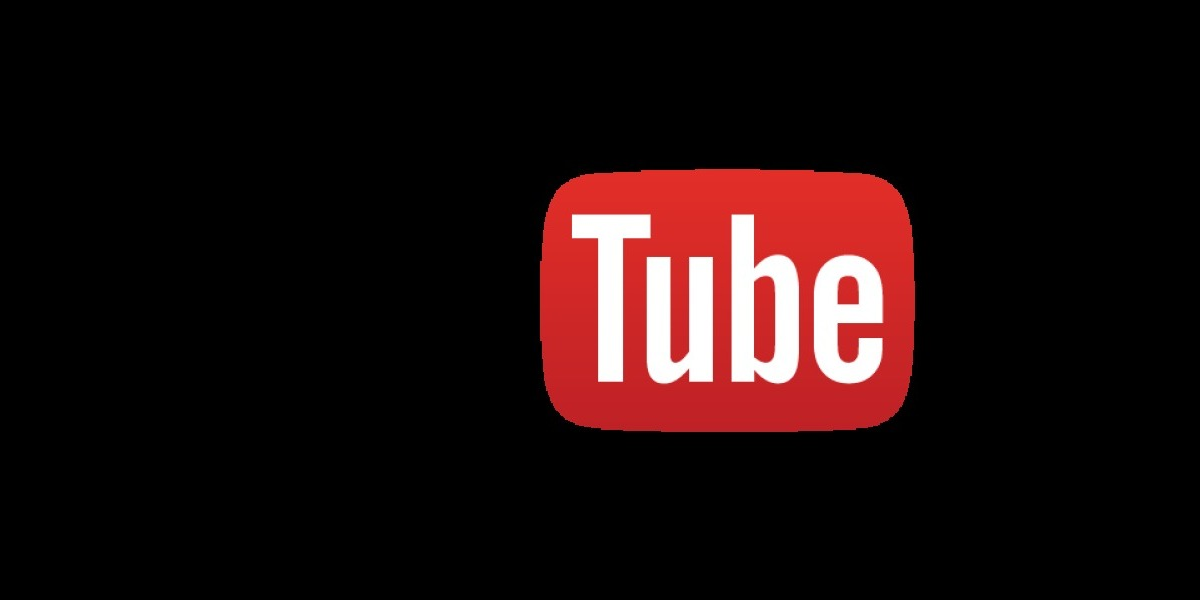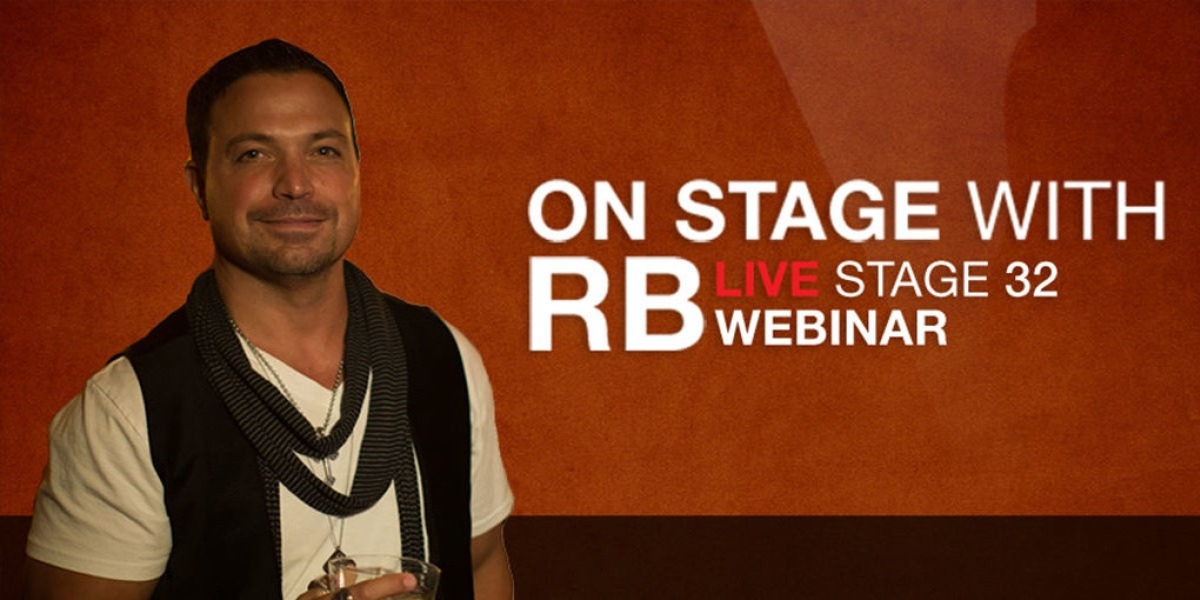Crowdfunding and Connectivity: Financing and Marketing Your Film in a Digital Age
 Richard "RB" Botto
Richard "RB" Botto In today’s post, Gerry delves into the much misunderstood world of crowdfunding. Of great interest, he details the important steps one must take to to secure support for your project (or crowdsourcing your project) before launching a campaign.
I thank Gerry for his contribution to the Stage 32 blog.
Enjoy!
RB
When I was looking at ways to finance my latest short film, Cross, I didn’t have a lot of options. I’m not independently wealthy and I don’t have some super rich uncle. I was familiar with crowdfunding, but the success stories I’d heard of came from already famous folks reaching out to their pre-existing fanbase. I’d read too many articles about the majority of crowdfunding campaigns failing and I knew I didn’t want to put myself in a situation where it felt I was begging people for money.
But Cross was a story I felt so passionately about. I knew I had to make this film because I knew nobody else would. Through a strategy of social media marketing and community outreach, I successfully crowdfunded my film and built an audience for it before I shot a single frame.
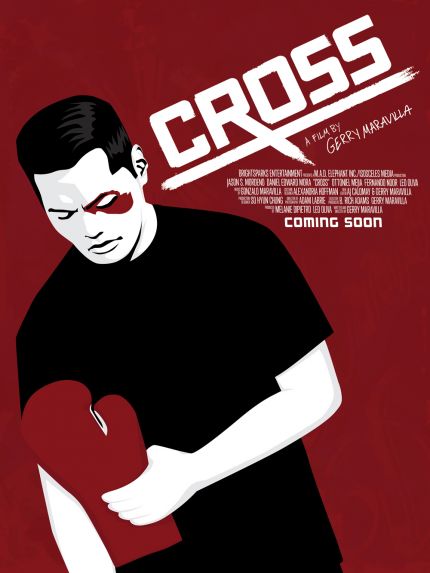
With Cross, I learned that my campaign started long before it officially launched. I realized that I needed to figure out who the audience for my film was and start reaching out to them early. Cross is the story of a young Filipino-American backyard boxer who enters a Latino fighting ring in the San Fernando Valley to cover his mom’s medical bills. Growing up mixed-race in the Valley, I had never really seen me or my friends represented on screen. I knew that with Cross, I had a unique opportunity to share people, cultures and places that Hollywood filmmakers would never touch.
Through simple Google research, my executive producer and I learned of a free panel that focused on representation of Filipinos in media. It was here that we met many talented and passionate Filipino-Americans working in the film industry, fighting to have their stories told.
Actor Dante Basco (Hook, Avatar: The Last Airbender) invited us to attend a meeting of his newly founded arts collective, #WeOwnThe8th, a group that advocates for greater representation of Asian-Americans in media. We also met Grace Borrero-Moss of NBC who told us about the Filipino Hollywood Mafia and FilAm Creative, two groups that connect Filipino-Americans working in the entertainment industry.
I started attending meetings at #WeOwnthe8th, the Filipino Hollywood Mafia and FilAm Creative. I connected with many artists and entertainers who shared my passion. Concurrently, my production team and I launched social media platforms for Cross on Twitter, Facebook and Instagram. My friend designed unique avatars, as well as a pitch poster, to showcase the tone of the film.

When I met new people at these community events, I’d talk to them about my film and my plans to crowdfund it. I’d share the film’s social media accounts, show them the pitch poster and talk about the story’s themes. I followed people I met on social media with the “CRSSmov” accounts and started posting images, links and articles that matched the style of the film.
I chose Seed&Spark as my platform to crowdfund the film. I researched materials and examples on how other filmmakers conducted successful campaigns. One of the most important things I took away from Seed&Spark was this: conduct your campaign as if success is an inevitably. This level of confidence will draw people to your project and convince them to come aboard because they’ll feel it’s a sure thing.
With this mindset, my producers and I worked out a specific rollout plan for our campaign. We created an Excel spreadsheet and calendar that mapped out our strategy and what key times and dates we would release content. We continued reaching out to the people we’d already connected with by providing updates through shareable and unique content.
For some of our earliest supporters, I photoshopped them wearing boxing gloves. This was an easy, shareable and personalized incentive that drew more eyeballs to our project. By creating fun, personalized content, I never felt like I was begging anyone for money. I was utilizing my skills as a filmmaker to show people that this story was something people wanted to see.
As the campaign progressed, my team and I focused on what content people were liking and sharing the most. In our video updates, we’d introduce the latest members of our cast and crew. At the end of these videos, I’d have the latest addition to our team “beat me up”. This stayed true to our film as it's a boxing movie, but also gave something people could look forward to or share. I've been told many times that people would watch all of our videos just to see the way I'd get beat up at the end.
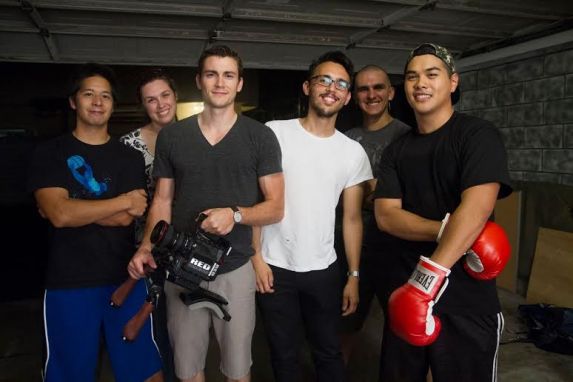
What's great too is that the more content people watch or share, the more they become invested in your campaign. They feel like they're part of the film. There were people sharing and posting content without me ever asking.
In the midst of our campaign, we partnered with #WeOwnThe8th to co-sponsor their monthly meeting. Here we gave out “Cross” posters, Mexican and Filipino pastries, and had attendees snap photos of them beating us up with giant inflatable boxing gloves. We just asked that people tagged their photos with the #CRSSmov hashtag so that we could expand the reach of our campaign and our film.
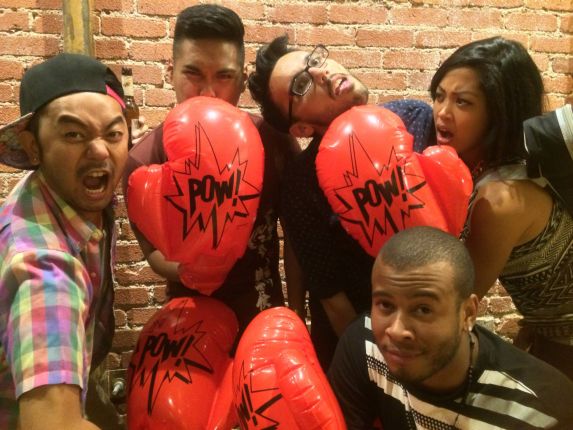
The community outreach led us to earn the endorsements of influential members of the Filipino and greater Asian American community. Manny Streetz, KISS-FM morning radio personality, and Bai-Ling, Asian American actress, both recorded videos supporting the project and shared them with their fanbase.
Because of the connections we’d made at different community events, me and my lead actor were also asked to appear on the Filipino talk show Kababayan Today. Here we continued to pitch and push our project to an ever wider audience while also providing new content to our existing supporters and followers.
At the end of our 30-day campaign, we reached the exact amount of money we set out to raise. We shot our film in October of 2014 and are currently in the final stages of post-production. However, what I learned from our outreach and social media was that we had fans and supporters for our little film. It’s been important to continue creating content and sharing it with them.
During production, we had an on-set photographer shoot promotional stills, we had a PA on set to post on the movie's Instagram account, and we had someone shoot a Behind the Scenes video to showcase production. We continue to share photos, videos and tidbits of our post-production process, as well as exclusive content from set. People get busy, people forget, but if you can share something cool like a photo or video they will remember, "Oh, yeah. That's that movie I helped produce." And it ideally gets them excited all over again and gets them to share these things with their friends/family again too.
.jpg)
Now as we reach the finish line for our film, we have people eager and waiting to see the movie. While our plan is to submit to film festivals to continue growing our audience, we already know that there are people who want to see this film. As my producing team and I pitch Cross, the feature film, we know that the process we went through gaining the financing will just be another tool in our arsenal to show financiers and investors that there’s an audience for films that star people of color.
I wanted to share my story because I honestly believe if I can do something, anyone can. There are so many talented filmmakers with big dreams, but have no idea on how to realize them. I want to tell them that it’s possible.
If there’s a story you’re passionate about, there are others out there who will be passionate about it too. Just think of your crowdfunding campaign like another film you're producing. The more pre-production and planning you do, the smoother your production will be. And just like a film set, if something's not working or things aren't happening the way you planned, stop, re-strategize and adapt to other methods. Your audience is gonna let you know what's working and what's not. Go out and make your movie.
Like this blog post? Please share it on social media (Facebook, Twitter, LinkedIn, email etc) by using our shiny new social media buttons at the top of the blog. Or post to your personal blog and anywhere else you feel appropriate. Thank you.
As always, Gerry is available for questions and remarks in the Comments section below...
| Introducing the Stage 32 YouTube Channel! |
| On Stage With RB (March 2015) Announced |
Search Stage 32 Blog
There are now 4044 blog posts for you to enjoy. Search them all by tags below.
Acting, Advice, Cinematography, Coffee & Content, Composing, Contests, Distribution, Featured, Filmmaking, Financing, Inspirational, Networking, Producing, Screenwriting, Success Stories, Tips, Trending,Relevant Tags
Recommended Articles

Talking Business: Key Agreements in Film Financing Part 2

Insider Intel: 2025- Your Year of Breakthroughs (+ What's Coming in 2026)

Stage 32 Certification Featured In IndieWire!

State of the Industry 2026 Now On-Demand: RB & Geoff Break Down What’s Next for Writers!
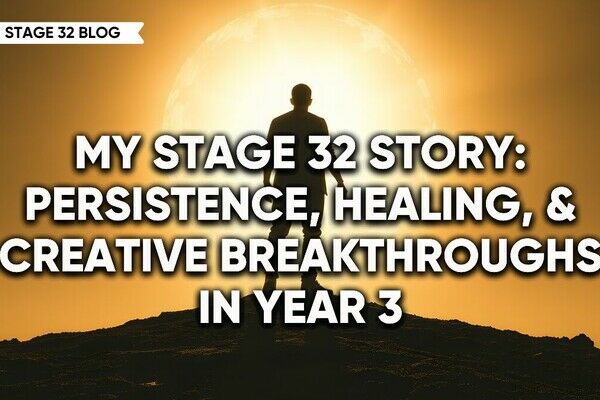
My Stage 32 Story: Persistence, Healing, & Creative Breakthroughs in Year 3

A Practical Guide for Actors: Tips & Advice Every Performer Should Know

Coffee & Content: The Genius of Weapons and How to Know When Your Script Is Ready
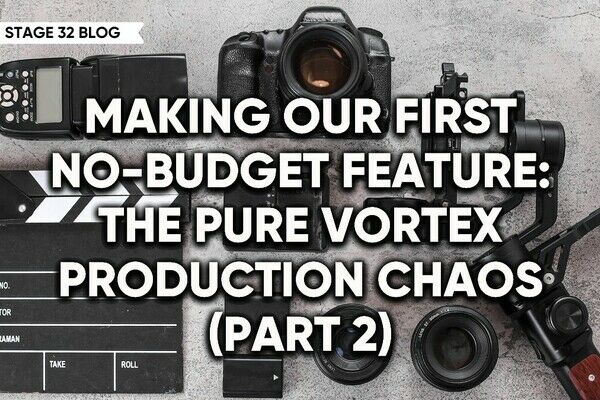
Making Our First No-Budget Feature: The Pure Vortex Production Chaos (Part 2)

November Write Club Week 4: The Art of the Pitch- What Managers & Execs Actually Want to Hear



